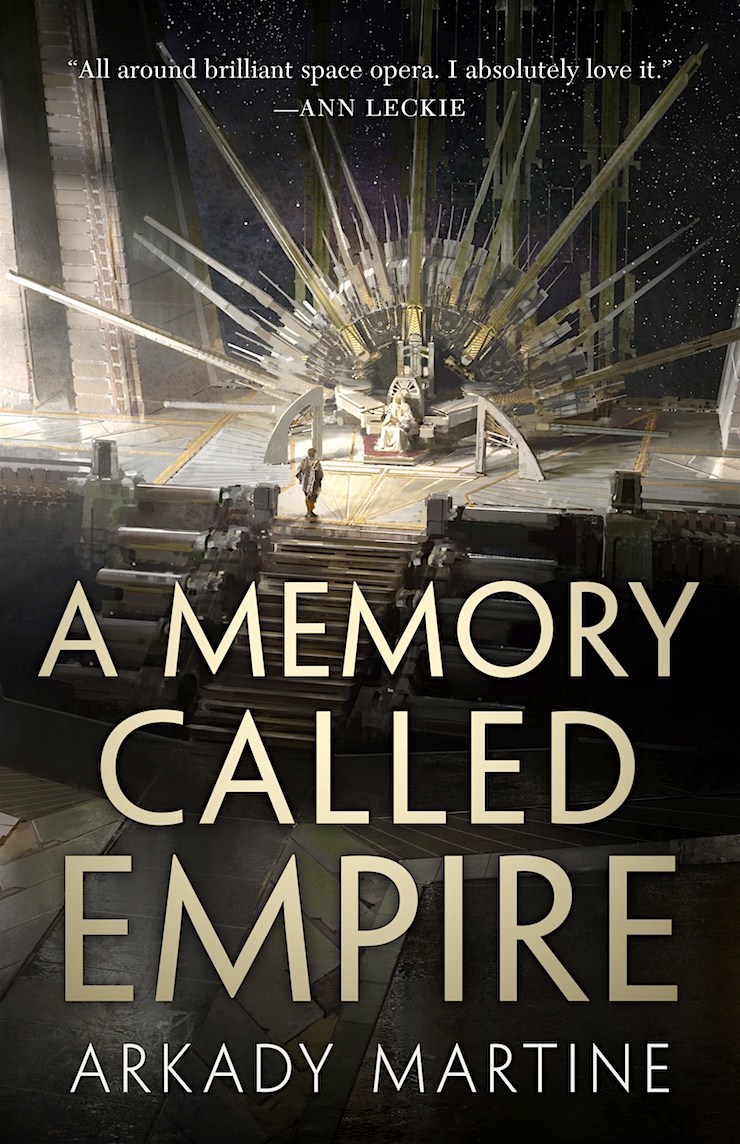 Ambassador
Mahit Dzmare arrives in the center of the multi-system Teixcalaanli Empire only to discover that her predecessor, the
previous ambassador from their small but fiercely independent mining station, has died. But no one will admit that
his death wasn't an accident—or that Mahit might be next to die, during a time of political instability in
the highest echelons of the imperial court.
Ambassador
Mahit Dzmare arrives in the center of the multi-system Teixcalaanli Empire only to discover that her predecessor, the
previous ambassador from their small but fiercely independent mining station, has died. But no one will admit that
his death wasn't an accident—or that Mahit might be next to die, during a time of political instability in
the highest echelons of the imperial court.
Now, Mahit must discover who is behind the murder, rescue herself, and save her station from Teixcalaan's unceasing expansion—all while navigating an alien culture that is all too seductive, engaging in intrigues of her own, and hiding a deadly technological secret—one that might spell the end of her station and her way of life—or rescue it from annihilation.
From the onset of A Memory Called Empire, intrigue piqued my curiosity. How did the Lsel Station ambassador die? And what is so terrible about the Teixalaanli Empire that a Councilor on the station longs for a potentially even more dangerous foe to step out of the shadows? And it continues throughout the story, answers leading to more questions, until the underlying issues of the moment are resolved at the end.
Mahit made for a good protagonist. I rooted for her and her budding cadre of allies as she sought out the answers to the questions that were linked to her survival and those of her home, Lsel Station. I liked her even though I didn't share her love for Teixcalaanli culture. That's not to say it wasn't interesting. The importance of poetry in their society from top to bottom (competitions at parties!) was intriguing without being too literary. Their naming conventions (a number coupled with an physical object) struck me as unique. And Mahit's need to point out the differences between her culture and Teixcalaanli, from facial expressions to vocal manners, revealed such subtle differences that I couldn't help but wonder if Martine was trying to draw Earthly comparisons. Anyway, I enjoyed Martine's world-building.
Action was limited, but the threat of violence was always present. In seeking answers into the death of her predecessor, she stuck her nose into places where it wasn't welcome. Were it not for the setting, one could easy mistake this story for a political thriller.
One element that made the book even better was the humor, dry as it was. In one instance, Mahit is attending a party for government functionaries where there was a poetry competition. Her liaison, Three Seagress, approaches her.
"Are you going to finish the drink?" asked Three Seagrass when the noise had died away.
"Yes. Why?"
"Because I am going to have to talk about Fourteen Spire's use of assonance for the rest of the evening, and you're going to have to listen, and we should both be slightly more inebriated."
"Oh," said Mahit. "When you put it like that..."
Mahit and Three Seagrass develop a friendship, but overhanging their relationship the whole time is the spectre of colonialism. Teixcalaanli citizens are taught to view everyone outside their borders as "barbarians", no matter their level of civilization. As Teixcalaan-phile Mahit constantly seeks out acceptance and camraderie among her contacts, she occasionally crashes into a wall that reminds her of this fact: She will never obtain what she seeks.
I really enjoyed this book. There was engaging world-building, dashes of humor, and enough intrigue and tension to ignore the lack of action. Looking forward to reading the next book.
4.5 stars
\_/
DED
No comments:
Post a Comment